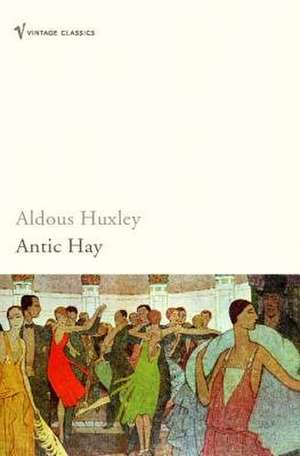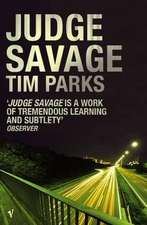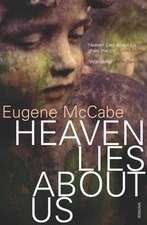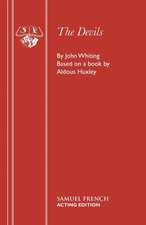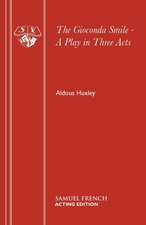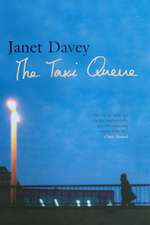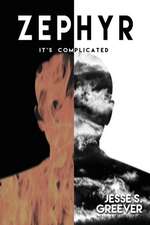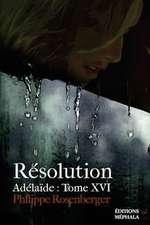Antic Hay: Vintage Huxley
Autor Aldous Huxleyen Limba Engleză Paperback – 2 sep 2004
“Futilitarian” best describes the type of desultory, pleasure-seeking intellectual Huxley pinned so mercilessly to the literary map in Antic Hay. Wickedly funny and deliciously barbed, the novel epitomizes the glittering neuroticism of post-First World War London.
| Toate formatele și edițiile | Preț | Express |
|---|---|---|
| Paperback (3) | 53.47 lei 23-34 zile | +19.61 lei 6-10 zile |
| Vintage Publishing – 2 sep 2004 | 53.47 lei 23-34 zile | +19.61 lei 6-10 zile |
| West Margin Press – 20 mai 2020 | 62.23 lei 3-5 săpt. | |
| Sanage Publishing House – 16 ian 2021 | 140.02 lei 6-8 săpt. | |
| Hardback (1) | 113.76 lei 3-5 săpt. | |
| Mint Editions – 7 mai 2020 | 113.76 lei 3-5 săpt. |
Preț: 53.47 lei
Preț vechi: 63.61 lei
-16% Nou
10.23€ • 11.15$ • 8.62£
Carte disponibilă
Livrare economică 04-15 aprilie
Livrare express 18-22 martie pentru 29.60 lei
Specificații
ISBN-10: 0099458187
Pagini: 320
Dimensiuni: 129 x 200 x 19 mm
Greutate: 0.23 kg
Editura: Vintage Publishing
Seria Vintage Huxley
Locul publicării:United Kingdom
Notă biografică
Aldous Huxley was born on 26th July 1894 near Godalming, Surrey. He began writing poetry and short stories in his early twenties, but it was his first novel, Crome Yellow (1921), which established his literary reputation. This was swiftly followed by Antic Hay (1923), Those Barren Leaves (1925) and Point Counter Point (1928) - bright, brilliant satires in which Huxley wittily but ruthlessly passed judgement on the shortcomings of contemporary society. For most of the 1920s Huxley lived in Italy and an account of his experiences there can be found in Along The Road (1925). The great novels of ideas, including his most famous work Brave New World (published in 1932 this warned against the dehumanising aspects of scientific and material 'progress') and the pacifist novel Eyeless in Gaza (1936) were accompanied by a series of wise and brilliant essays, collected in volume form under titles such as Music at Night (1931) and Enda and Means (1937). In 1937, at the height of his fame, Huxley left Europe to live in California, working for a time as a screenwriter in Hollywood. As the West braced itself for war, Huxley came increasingly to believe that the key to solving the world's problems lay in changing the individual through mystical enlightenment. The exploration of the inner life through mysticism and hallucinogenic drugs was to dominate his work for the rest of his life. His beliefs found expression in both fiction (Time Must Have a Stop, 1944 and Island, 1962) and non-fiction (The Perennial Philosophy, 1945, Grey Eminence, 1941 and the famous account of his first mescalin experience, The Doors of Perception, 1954. Huxley died in California on 22nd November 1963.
